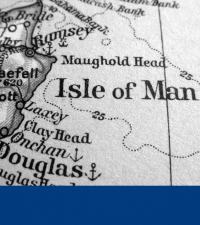I Insolvency Law, Policy & Procedure
i Statutory Framework and Substantive Law
Insolvency law on the Isle of Man is governed primarily by the following legislation:
- The Fraudulent Assignments Act 1736
- Preferential Payments Act 1908
- Preferential Payments and Other Acts (Financial Adjustments) Act 1973
- Companies Act 1931-2004
- Companies Act 2006
The primary legislation governing insolvent companies can be found in sections 155-276 of the Companies Act 1931.
This is supported by the Companies (Winding-up) Rules 1934.
The regime in the Isle of Man, perhaps unsurprisingly due to its proximity, shares many similarities with the regime in England and Wales and indeed with many common law jurisdictions. This is due in part to the fact that the Isle of Man Companies Act 1931 was based on the English Companies Act 1929.
Nevertheless there are certain idiosyncrasies and unique features to Isle of Man insolvency law and procedure which have developed over time.
The Fraudulent Assignments Act 1736 states that “…all fraudulent Assignments of Transffers of the Debtor’s Goods or Effects shall be void and of no Effect against his just Creditors, any Custome or Practice to the contrary notwithstanding.” (sic)
A transaction will be void under the 1736 Act if, and only if, it is entered into dishonestly, i.e. if the debtor enters into the transaction with the intention to defraud his or her creditors. The 1736 Act applies to present and ascertained future debts at the time of the transaction in question. It does not however apply to claims filed after the transaction.1 Further, assignment or transfer of debtors’ goods is only void against existing creditors. It is not illegal to protect property against future creditors. Accordingly one may enter transactions with a view to and for the purpose of protecting property against potential future creditors which do not presently exist.2
ii Policy
In Donnell v. Siboney,3 Deemster Doyle, then 2nd Deemster of the Isle of Man, stated that:
To present a petition to wind up a company is a very serious step to take. It can result in the death of the company.
To present a petition to wind up a company is therefore considered to be a serious step and not to be done lightly. It might be argued therefore that there is some reluctance for the Isle of Man courts to wind-up a company. However, the fact that presentation of a winding-up petition is considered a last resort will not generally prevent the court from winding-up a company where there are good grounds for doing so and the debt is not disputed.
Lehman Brothers Inc v Navigator Gas Management Limited4 states that:
It is well settled law that if a creditor with standing makes application to have a company wound-up, and if the court is satisfied that such company is unable to pay its debts, a winding-up order will follow unless there is some special reason to the contrary. Further, in such circumstances and being so satisfied, the court would assume that a winding-up order should be made. The burden rests with any objector to show special reasons why such an order should not be made.
It follows that if a company is considered to be unable to pay its debts the Isle of Man Courts will not hesitate to wind it up unless that company or other objectors can show special reasons not to and the burden is on them to do so.
The practicality is that if a winding-up petition is presented and a company is deemed unable to pay its debts the chance of its survival is minimal. There are certain mechanisms which allow schemes of arrangement or receivership but if a company is in financial difficulty and finds itself unable to pay its debts as they fall due and a creditor in receipt of an undisputed debt wishes to wind-up the company there is a very good chance that the creditor will succeed.
iii Insolvency Procedures
There are a variety of options open in respect of an insolvent company on the Isle of Man:
- It can be wound up either voluntarily by its creditors5 or by the court6 or subject to the supervision of the court7;
- It can appoint a receiver by way of application to the court8 or a charge holder can appoint a receiver in accordance with the terms of the security document;
- A liquidator may make an application to the court to sanction a compromise or a scheme of arrangement.9
Winding-up proceedings by the court are discussed below at sub-heading iv ‘Starting Proceedings’.
There is no provision for the appointment of an administrator in the Isle of Man, nor is there a position of administrative receiver under Isle of Man law. However, foreign administrators are recognised and are likely to be assisted by the Isle of Man courts if a request is made.
The Manx legal position on the appointment of receivers is by and large the same as the pre-1986 position in England and Wales. There is no requirement that a receiver should have any qualification so long as he or she has reached full age although practically it would be difficult to envisage a situation where a receiver would not be an experienced or appropriately qualified insolvency practitioner.
Unless the power to appoint a receiver has been granted by way of debenture or other appropriate agreement, it will be necessary to apply to the court in order for a receiver to be appointed. The court’s jurisdiction to appoint a receiver in the Isle of Man follows the common law position and will only be exercised in order to aid some legal or equitable right.10
The appointment must of course be of some advantage to the applicant and the property in question must have some value.
Appointment of a receiver by debenture or under a charge will be in accordance with the terms of the security document. Subject to any terms to the contract the appointor may remove or replace the receiver at any point he or she chooses.
The jurisdiction of the Manx court to affect schemes of arrangement has been described as being “extremely wide”.11 A liquidator has power12 to apply to the court for the summoning of a meeting of the creditors and contributories for a vote to be held upon the scheme. If three quarters in value of the creditors or members present and voting agree to the scheme of arrangement or compromise then if this is sanctioned by the court it is binding on the creditors, members and the liquidator.
The Manx courts have a history of proactively assisting overseas courts in respect of insolvency matters. The First Deemster (High Court judge) recently stated13 in a case involving US Chapter 11 proceedings of an Isle of Man company that “The substantive insolvency proceedings should be confined to one jurisdiction with other courts worldwide, where necessary, acting in an ancillary capacity and recognising and assisting the jurisdiction of the primary court…” In this case the Manx court was content for the US court to be the primary court.
The Island’s court system is modern and efficient and ancillary insolvency proceedings can be dealt with in a timely manner.
iv Starting Proceedings
The language of the Companies Act 1931 is that insolvency proceedings before the court are commenced in the Isle of Man by way of a winding-up petition. The new court rules brought in by the Isle of Man Courts of Justice in 2009 now refer to “claims” rather than “petitions”, so more accurately a winding-up petition should now be a winding-up claim, however for ease of reference and consistency we will make reference to winding-up petitions in this chapter.
The following parties may commence an application to wind up an Isle of Man company14:
- The Company;
- The Isle of Man Treasury (in respect of public companies in limited circumstances);
- Any creditor or creditors (including contingent or prospective creditors);
- Any contributory or contributories;
- 10 or more policyholders in the case of an insurance company;
An application to wind up an Isle of Man company may be made by any or all of the above listed parties either together or separately.
Notwithstanding the above there are further limitations on when a contributory or a contingent or prospective creditor may bring a winding up petition. In respect of contributories they are only entitled to present a winding up petition if their shares were allotted at least 6 months before the commencement of the winding up petition (or they have devolved to the contributory through the death of the original holder).15 Contributories may present a petition if the members of the company have been reduced below two.
Before an application for winding up by prospective or contingent creditors can be heard by the court they must establish a prima facie case for winding up and provide security for costs.16
In addition to the above the Financial Services Authority may present a winding up petition where it is expedient in the public interest that the company is wound up17.
The Isle of Man Court has discretion on hearing a winding-up petition to make such orders that it sees fit and may dismiss, adjourn, make any interim order or any other order that it deems appropriate in the circumstances.18 The only fetter on the Court’s discretion is that it may not refuse to make a winding-up order on the ground that the only assets of the company have been mortgaged to or beyond their value or that the company has no assets. Indeed, those will ordinarily be reasons to wind-up a company.
Once a winding up petition has been presented the company or any creditor or contributory may apply for a stay of the winding up proceedings19 or oppose the winding up proceedings20.
v Control of Insolvency Proceedings
Once the court has appointed a liquidator it is, for all intents and purposes, the liquidator that controls the insolvency proceedings subject to his compliance with statute and the Companies (Winding up Rules) 1934. The court is required to “take cognizance21” of the liquidator’s conduct and must enquire into any failings by the liquidator and take such action as it may think expedient. The court has power to require a liquidator to attend before it and be examined on oath in respect of the winding up.
The directors of the company must provide the liquidator with a statement of the company’s affairs within 14 days of the winding up order or the appointment of a provisional liquidator. As soon as is practicable after receipt of the statement of affairs the liquidator is required to submit a preliminary report to the court giving amongst other things the reasons for the failure of the company and whether in his opinion further enquiry is desirable into the promotion, formation or failure of the company or the conduct of its business.
vi Cross-border issues
Due to its size, location and its role as an international business centre most Isle of Man company liquidations involve cross border issues.
The approach of the Manx court has been to provide assistance to foreign courts. The Manx court has been prepared to extend the scope of Manx common law to assist overseas liquidators when there was no statutory power to provide such assistance.22
The principle of (modified) universalism is a principle recognised by Manx common law and provides that personal and corporate insolvency should be unitary and universal23 a principle that was applied by the Privy Council in the case of Cambridge Gas24.
As the Island’s insolvency case law develops there is a clear trend towards assisting overseas courts and claimants rather than putting hurdles in their way. The Manx court of appeal, known as the Staff of Government Division, in the case of Obertor v Gaetano25 interpreted the Judgments (Reciprocal Enforcement)(Isle of Man) Act 1968 (“the 1968 Act”) in a purposeful way so as to not require an English judgment creditor to have to register that judgment under the 1968 Act before being able to serve a statutory demand on the judgment.
In Interdevelco v Waste2energy Group26 the Manx court took matters one stage further and refused the application of a creditor to wind up an Isle of Man company as the company was already in Chapter 11 proceedings before the United States Bankruptcy Court for the District of Delaware. The court stated that the fact that the company was incorporated in the Isle of Man was not a sufficient ground and held that there was no need for “additional substantive winding up proceedings to take place in the Isle of Man”.
II Insolvency Metrics
As Isle of Man companies are predominantly used for international trade or asset holding it is the state of the global economy rather than the local economy that determines the number of insolvencies. Despite the Isle of Man avoiding entering into recession there were a number of large profile insolvencies involving the companies in the banking and property sector.
While there are no publicly available statistics, the number of insolvencies that are in the public domain do not appear to be grossly excessive for what has been a deep global recession.
III Plenary Insolvency Proceedings & Ancillary Insolvency Proceedings
Michael Simpson and Peter Norman Spratt as joint liquidators and deemed official receivers of Kaupthing Singer & Friedlander (Isle of Man) Limited (in liquidation) and Kaupthing Singer & Friedlander (Isle of Man) Limited (in liquidation) v Light House Living Limited and Elle Macpherson, Judgment of the Staff of Government (Appeal Court) dated 31st October 2011
This case concerned the winding up of a bank known as Kaupthing Singer & Friedlander (Isle of Man) Limited (“the Bank”) and the application of the rules of statutory set off in respect of a deposit held with the bank by the supermodel Elle Macpherson.
The rules of Statutory set off are to be found at Section 22 of the Bankruptcy Code 1892, as applied to company windings up by section 248 of the Companies Act 1931. Section 22 is in substantially the same form as its equivalent United Kingdom predecessor and successor provisions.
The relevant parts of Section 22 provide that:
Where there have been mutual credits, mutual debts, or other mutual dealings between a debtor against whom an order of adjudication shall be made under this Act, and any other person proving or claiming to prove a debt under such order, an account shall be taken of what is due from the one party to the other in respect of such mutual dealings, and the sum due from the one party shall be set off against any sum due from the other party, and the balance of the account, and no more, shall be claimed or paid on either side respectively.
At the date of the winding up of the Bank Miss Macpherson had deposits of US$ 4,075,327.86, then equivalent to £ 2,541,680.09, at the Bank and Light House Living Limited (“LHL”) owed the Bank £7,801,727.19 in respect of a mortgage loan which had been used for the purchase of a London property and refinancing of a New York apartment.
LHL was a newly formed Isle of Man company that was beneficially owned by Miss Macpherson. LHL acted as the borrower and purchased the London property in its name but by way of an agreement held it as nominee for Miss Macpherson.
Miss Macpherson and LHL contended that section 22 applied to their dealings with the Bank and that the sum due to Miss Macpherson from the Bank in respect of the deposits of £2,541,680.09 was automatically set off against the sum due from LHL to the Bank in respect of the mortgage loan of £7,801,727.19 so that only the net balance of £5,289,125.52 was due from LHL to the Bank. The liquidator disagreed with this contention and sought a declaration that Miss Macpherson’s deposits with the Bank had not been set off against LHL’s debt to the Bank.
As section 22 is mandatory, automatic and self-executing on the making of a winding up order it was the task of the court to decide whether or not section 22 had operated so as to set off the Bank’s liability to Miss Macpherson against the liability of LHL to repay the loans.
The lower court found in favour of Miss Macpherson and concluded that she was under a “beneficial liability” to the Bank in respect of the loan taken out by LHL and that the “beneficial liability” was a debt due from Miss Macpherson to the Bank for the purposes of section 22. The court held that section 22 operated by setting off the deposits held in Miss Macpherson’s name against the “beneficial liability” owed by Miss Macpherson to the Bank.
This finding was derived from the judges reasoning that the proceeds of the loans, the London property and the proceeds of sale of the London property, were all held by LHL on trust for Miss Macpherson and that the parties envisaged that repayment of the loans would be made from that property or proceeds of sale. As a result LHL’s liability was merely a “legal” liability to repay the Bank on Miss Macpherson’s behalf and Miss Macpherson was under a “beneficial liability” to the Bank.
The court of appeal rejected the finding that Miss Macpherson was under a “beneficial liability” to the Bank and determined that she had no immediate personal liability to the Bank.
The Appeal court held that section 22 only operates “where on the making of a winding up order a sum is due from the insolvent to a person, and a sum is due from that same person to the insolvent”, and that the judge “was required to look at the debts which were the outcome of the transactions between the parties, and then to decide whether they were mutual debts within the meaning of section 22”.
Obertor Limited v Gaetano Limited Staff of Government (Appeal Court) dated 25th November 2010
Gaetano Limited (“Gaetano”) applied for a winding up order against Obertor Limited (the “Company”). The grounds for the winding up order were that the Company was unable to pay its debts. The Company had been served with a statutory demand which demanded the payment of €3.95 million plus £50,000 on account of costs and VAT pursuant to an order of the Chancery Division of the English High Court (“the English Judgment”). The English Judgment had not been registered under the Judgments (Reciprocal Enforcement) (Isle of Man) Act 1968 (“the 1968 Act”).
The 1968 Act provides a system whereby certain judgments including judgments of the High Court of England and Wales can be enforced in the Isle of Man by way of registration under the Act. Once the foreign judgment is registered under the 1968 Act it may be enforced in the same way as if the judgment had been a judgment originally given in the High Court of the Isle of Man and entered on the date of registration.
Section 6 of the 1968 Act provides as follows:
No proceedings for the recovery of a sum payable under a judgment to which this part of the Act applies, other than proceedings by way of registration of the judgment shall be entertained by any court in the Isle of Man.
The issue before the Court of Appeal was whether section 6 of the 1968 Act prevented the continuation of winding up proceedings that are based on a statutory demand served pursuant to section 163 of the Companies Act 1931 (the “1931 Act”) and which in turn relies upon an unregistered English judgment.
The court took a purposive approach to the interpretation of section 6 and determined that “the purpose of section 6 of the 1968 Act was not to prevent creditors relying on unregistered English judgments in their statutory demands under the 1931 Act. The purpose of section 6 of the 1968 Act was simply to prevent relevant foreign judgments being enforced by a fresh action on the judgment rather than proceeding by way of the simple and speedy registration process provided under the 1968 Act.”
To allow the winding up proceedings to continue based on the unregistered English judgment would not prevent the Company from arguing in the winding up proceedings that the English judgment was obtained by fraud or that to have regard to it would be contrary to public policy. It was confirmed that if the Company genuinely disputes the debt it can raise that issue in the winding up proceedings.
Financial Services Authority v Louis Group Structured Capital Limited (“Structured Capital”) and LG SP Investments Ltd (“LG SP”) and Louis Group International (Europe) Limited (“LG Europe”) and Louis Group Sln Limited (“LG SIN”) and Louis Group Structured Fund Plc (“Fund”) and Louis Group (IOM) Limited (“LG IOM”) and others, Judgment 1st February 2013
This case involved the winding up in the public interest of a number of companies within the Louis Group and is of interest as it sets out the Isle of Man law and the procedure to be followed on winding up in the public interest.
The Isle of Man Financial Services Authority (“the Commission”) in March 2012 had applied for and obtained an order for the appointment of inspectors to investigate and report on the affairs of the Fund and report on 6 sums or groups of funds totalling about £5 million.
In October 2012 the Commission presented winding up claims against the six defendant companies and also applied, without notice, for the appointment of provisional liquidators of (1) Structured Capital (2) LG SP and (3) LG Europe and orders were made appointing the Inspectors as Provisional Liquidators of those companies. The winding up hearing took place in January 2013.
Under section 164(1)(d) of the Companies Act 1931 if it appears to the Commission that it is expedient in the public interest that a company should be wound up by the court it may present a claim for it to be “so wound up if the court thinks it proper for it to be so wound up.”
The court confirmed that the first stage is for the Commission to form a view that it is expedient in the public interest that a company should be wound up and that this was a pre-requisite to the presentation of the winding up claim.
At the hearing of the claim the court’s task is to carry out the balancing exercise of the reasons for and against winding up the company having regard to all the circumstances as disclosed by the totality of the evidence before the court. The court has to weigh the factors which point to the conclusion that it would be proper to wind up the company against those which point to the opposite conclusion. The court should have regard to all of the circumstances of the case including the interests of all parties, members and creditors of the company as well as the interests of the public.
The court must identify for itself the aspects of the public interest which would be promoted by making a winding up order in a particular case.
The court set out the following as grounds for winding up in the public interest –
- A need to investigate the company.
- In a case involving fraud or its proceeds if the only way of establishing if the company has been used in such a way is by winding it up then this is a good ground (Law Investments Limited 2005-06 MLR 73).
- The existence of a risk to legitimate third party creditors.
- The lack of confidence in the conduct and management of a company’s affairs.
- Where there is a need to stop the activities of companies which fall below generally accepted minimum standards of commercial behaviour.
- Lack of adequate record keeping and the failure to keep proper books of account.
- Where matters of grave concern require further investigation by independent liquidators.
It was confirmed by the court that the basis for the exercise of the court’s jurisdiction on a winding up in the public interest claim is whether or not winding up is proper in the public interest and insolvency or failure of substratum alone are unlikely to suffice.
Interdevelco Limited v Waste2energy Group Holdings Plc, Judgment 10th October 2012
This was an application by Interdevelco Limited for the winding up of Waste2energy Group Holdings PLC (“W2E”) an Isle of Man company.
W2E was within a corporate group which had considerable connections with and activity in the United States of America. W2E and other companies within the group were subject to the jurisdiction of the US Bankruptcy Court and in Chapter 11 insolvency proceedings with an American trustee appointed to administer them.
The winding up claim was opposed by W2E and W2E sought a declaration that the Isle of Man court should not exercise its jurisdiction.
The court granted the application and declared that it should not exercise its jurisdiction to try the winding up claim and set aside the Claim Form.
His Honour Deemster Doyle stated that –
“the principle of universalism in Manx law provides that personal and corporate insolvency should be unitary and universal. There should be a unitary insolvency proceeding in the appropriate lead jurisdiction which receives worldwide recognition and applies universally to all of the insolvent’s assets. The assets of the insolvent entity should be distributed to creditors under a single universally applicable system of distribution. In simple terms, forum non conveniens in Manx law provides that legal proceedings should be conducted in the most convenient or natural forum i.e. that with which the proceedings have the most real and substantial connection.
An unnecessary duplication of substantive insolvency proceedings in more than one jurisdiction is undesirable. It inevitably involves further delay, expense and inconvenience. The substantive insolvency proceedings should be confined to one jurisdiction with other courts worldwide, where necessary, acting in an ancillary capacity and recognising and assisting the jurisdiction of the primary court in an orderly progression and conclusion of the substantive insolvency proceedings.” (paragraphs 1 and 2)
and
“There should in the circumstances of this case be one unitary and universal insolvency based in the US, the jurisdiction with which the group of companies including the Defendant have close connections or to put it in other words “the centre of their main interests” or their “nerve centre”. The Defendant and the other companies do not have any real substantive connection with the Isle of Man. They are simply incorporated here. That simple formal fact should not prevent the well advanced insolvency proceedings in the US from proceeding to their conclusion without additional substantive insolvency proceedings being commenced in the Isle of Man. There is nothing in Manx law or Manx public policy that requires this court to disregard the proceedings before the US Bankruptcy Court. This court should not seek to unravel or duplicate all the good work done by the US Bankruptcy Court. Substantial justice is not best served by starting fresh substantive insolvency proceedings in the Isle of Man. Substantial justice is best served by permitting the proceedings before the US Bankruptcy Court, involving companies and creditors with substantial connections with the US, to progress to their conclusion.” (paragraph 101)
Cambridge Gas Transportation Corporation v Official Committee of Unsecured Creditors of Navigator Holdings PLC and others [2006] UKPC 26 and Rubin and another v Eurofinance SA and others [2012] UKSC 46
It is necessary to briefly consider the potential impact from an Isle of Man perspective of the Supreme Court decision of Rubin upon the Privy Council case of Cambridge Gas.
In Cambridge Gas investors in a shipping business borrowed US$ 300 million on the New York Bond market and purchased five gas transport vessels. The venture failed and ended with Chapter 11 proceeding in the US Bankruptcy Court in New York. Cambridge Gas, a Cayman company owned directly or indirectly around 70% of the shares of Navigator Holdings plc (“Navigator”), an Isle of Man company. Navigator owned all the shares of an Isle of Man company which in turn owned companies which each owned one ship. The US court approved a plan to vest the shares of Navigator in its creditors. The committee of creditors petitioned the Manx court for an order vesting the shares in their representatives. Cambridge Gas argued that the US court had lacked jurisdiction as its order in respect of the Isle of Man shares was an order in rem and not within the jurisdiction of the US courts or alternatively if it was an order in personam against Cambridge Gas then as the company had not submitted to the jurisdiction of the US court the Manx court had no jurisdiction to recognise the US order.
The question for the Privy Council on appeal from the Isle of Man was whether an order of the New York court was entitled to implementation in the Isle of Man.
The Privy Council held that the plan could be carried into effect in the Isle of Man based on the following reasoning:
-
- Insolvency proceedings do not fall into the category of a judgment in personam or in rem as they are judicial determinations of the existence of rights whereas insolvency proceedings are collective proceedings to enforce rights and not to establish them.
- The principal of universality underlies the common law principles of judicial assistance in international insolvency and that principle was sufficient to give the Manx court jurisdiction to assist by “doing whatever it could do in the case of a domestic insolvency”27.
- The same result could have been achieved using a scheme of arrangement under section 152 of the Companies Act 1931.
- It mattered not that the shares in Navigator belonged to Cambridge Gas and that company was not a party to the bankruptcy proceedings as shares were simply “a bundle of rights against the company and the other shareholders” and the shareholders rights can be extinguished by a scheme of arrangement under section 152 of the Companies Act 1931.
The decision in Rubin raises doubt as to whether Cambridge Gas is still good law. The Supreme Court determined that the recognition and enforcement of foreign insolvency judgments is subject to the same common law rules which apply to the enforcement of any other foreign judgment. The court rejected the approach taken in Cambridge Gas which in effect enabled foreign judgments in insolvency proceedings to be enforced without applying the normal common law restrictions.
The leading judgment in Rubin was given by Lord Collins who said obiter that Cambridge Gas was wrongly decided and that there was no basis for the recognition of the order of the US Bankruptcy Court in the Isle of Man as the shares in Navigator were situate in the Isle of Man and not subject to the in rem jurisdiction of the US Bankruptcy Court.
As it is the Judicial Committee of the Privy Council, rather than the Supreme Court, that is the Isle of Man’s Highest court then arguably Cambridge Gas remains good law in the Isle of Man. It will remain to be seen how the Isle of Man courts will deal with Cambridge Gas in the light of Rubin.
IV TRENDS
The Island’s company and insolvency legislation is in the process of being reviewed and updated with the aim of creating a more modern and efficient system. The proposed changes to the insolvency regime have not yet been made public.
-
-
- In Re Heginbotham 1999-01 MLR 53
- Jefferies v. Henderson Walker 1522-1920 MLR 296. The case itself relates to an individual who was adjudged bankrupt but the principal is equally applicable to companies.
- 10th December 2008, Chancery Division
- 31st May 2005, Chancery Division
- Section 214 Companies Act 1931
- Section 162 ibid
- Section 243 ibid
- Section 42 High Court Act 1991
- Sections 152 and 184(1)(e) Companies Act 1931
- See Siskina v. Distos Compania [1979] AC 210. For the case law on the persuasive nature of certain English or other foreign judgments in the Isle of Man see Frankland v. R (PC) 1987-89 MLR 65.
- Per Lord Hoffmann in Cambridge Gas Transport Corporation v Official Committee of Unsecured Creditors (of Navigator Holdings PLC and others) [2006] UKPC 26
- Sections 152 and 184(1)(e) of the Companies Act 1931
- Deemster Doyle in Interdevelco Limited v Waste2energy Group Holdings PLC, Judgment 10th October 2012 see note in section III ‘Plenary Insolvency Proceedings’
- Companies Act 1931 s.164(1)
- Ibid at s.164(1)(a)(i)&(ii)
- Ibid at s.164(1)(c)
- See note in section III ‘Plenary Insolvency Proceedings’ on the case of Financial Services Authority v Louis Group Structured Capital Limited and Others, Judgment 1st February 2013
- Ibid at s.165(1)
- Section 166 Companies Act 1931
- Petition of Colombo Investments & Others 21st June 2005 Staff of Government (Appeal court)
- Section 189 Companies Act 1931
- In re Impex Services Worldwide Ltd 2003-05 MLR 115
- Interdevelco Limited v Waste2energy Group Holdings Plc Judgment 10th October 2012 see note in section III ‘Plenary Insolvency Proceedings’
- Cambridge Gas Transport Corporation v Official Committee of Unsecured Creditors (of Navigator Holdings PLC and others) [2006] UKPC 26
- Obertor Limited v Gaetano Limited Staff of Government (Appeal Court) dated 25th November 2010 see note in section III ‘Plenary Insolvency Proceedings’
- See 23
- Paragraph 44 Rubin and another v Eurofinance SA and others [2012] UKSC 46
-
This publication is intended merely to highlight issues and not to be comprehensive, nor to provide legal advice. Should you have any questions on issues reported here or on other areas of law, please contact one of your regular MannBenham contacts, or contact the authors Miles Benham and Chris Webb.


























